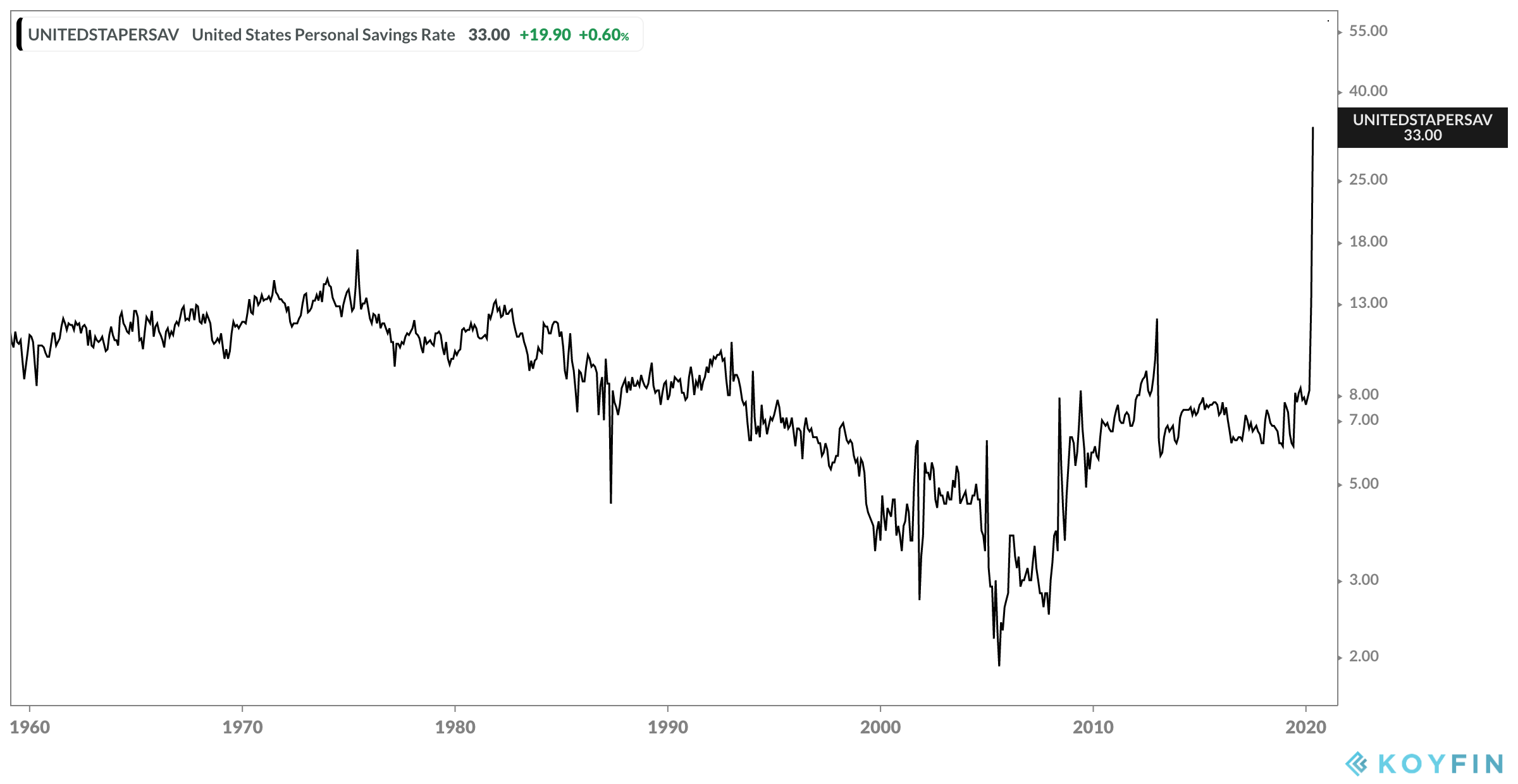Things have undoubtedly been tough over the last few months as a result of the coronavirus. Between the tens of millions of job losses and mandatory stay-at-home orders, most Americans have been affected.
Between job losses, a lack of things to spend money on and general pessimism over the state of the economy, American spending has collapsed while savings have soared.
U.S. consumer spending dropped by a record 13.6% in April, according to the U.S. Commerce Department. April's decline was worse than March's 6.9% decline, which at the time set a record for the largest monthly decline in U.S. consumer spending dating back to 1959. Spending on durable goods dropped 17.3% during April, while spending on non-durable goods and services dropped 16.2% and 12.2%, respectively.
Americans' incomes increased by 10.5% in April, fueled by government assistance through unemployment benefits and stimulus checks. Wages and salaries dropped by $740 billion last month, but the decline was offset by an annualized $3 trillion increase in income from government support.
As spending tanked and income jumped in April, Americans stashed away their money. The U.S. personal savings rate jumped to a record 33% in April, according to the U.S. Bureau of Economic Analysis. The savings rate was 12.7% in March when the effects of the coronavirus just started to take hold in the U.S.
The rate, which is the amount Americans save as a percentage of their disposable income, nearly doubled the previous record high of 17.3% in May 1975. April marked the first time the savings rate jumped above 15% since 1975, while it mostly remained in the 5% to 10% range throughout the last decade.

"There’s not much opportunity for many people to go out and spend money," senior fellow at Harvard Kennedy School Megan Greene said. "With shops all closed and everybody locked up, the 'shopportunities' have dried up. That speaks to a kind of demand shock."
Bank of America CEO Brian Moynihan said checking accounts with balances of less than $5,000 had 30% to 40% more money than they did three months ago. Moynihan said data from Bank of America (NYSE:BAC), which counts half of American households as customers, shows credit and debit card spending is down 5% to 10% in May after falling 30% in April.
"You’re starting to see the economy come out of the hole," Moynihan said. "You’re seeing us come out of the depths of where we were in April, and that’s good news."
While most of the country has relaxed stay-at-home orders, many people continue to remain at home. Furthermore, many of the Americans who have been laid off or placed on furlough still have yet to return to work as government assistance will soon begin to dry up.
